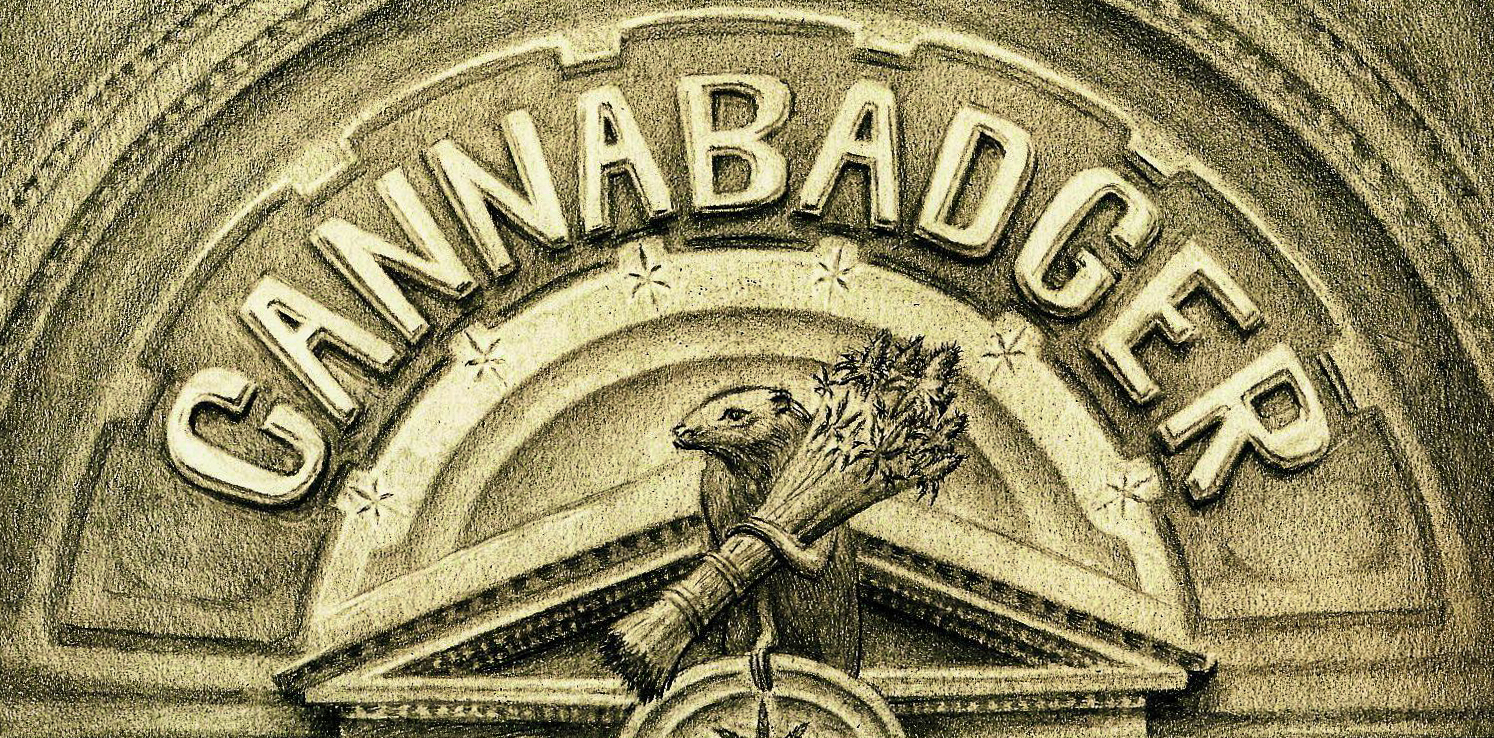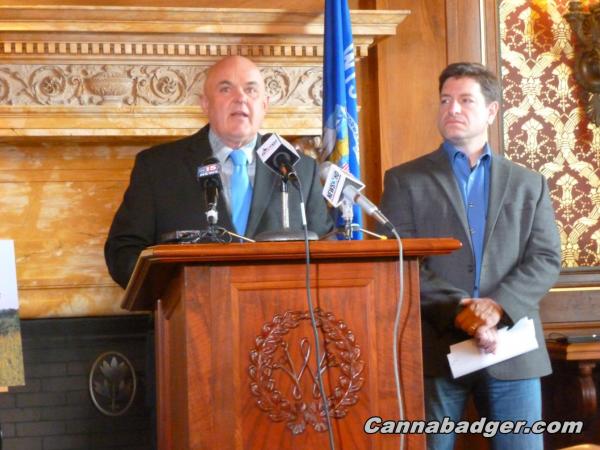A Wisconsin industrial hemp bill sponsored by Rep. Dave Considine (D-Baraboo) that had been revised after circulating now has been given a bill number.
2017 Assembly Bill 147 is sponsored by Representatives Considine, Pope, C. Taylor, Kolste, Spreitzer, Milroy, Sargent, Crowley, Subeck, Berceau, Sinicki, Hesselbein, Brostoff, Bowen, Ohnstad, Zamarripa, Barca and Quinn; and cosponsored by Senators L. Taylor, Erpenbach, Miller, Ringhand and C. Larson. Rep. Quinn (R-Rice Lake) is currently the bill’s sole Republican cosponsor so far. He also cosponsored Rep. Considine’s 2015 hemp bill 2015 AB215.
AB 147 was referred to Committee on Agriculture chaired by Rep. Lee Nerison (R-Westby).
AB147’s provisions include authorizing the University of Wisconsin-Madison College of Agricultural and Life Sciences and the Wisconsin Department of Agriculture, Trade and Consumer Protection (DATCP) to develop a Wisconsin heritage seed for industrial hemp. The bill also allows members of state tribes to grow, possess, process, transport, or sell industrial hemp with a license from DATCP or from the member’s tribe.
Here is the full Analysis by the Legislative Reference Bureau:
Current law places various restrictions on the possession, manufacture, and delivery of controlled substances. One such controlled substance is tetrahydrocannabinol (THC), including THC contained in or obtained from marijuana. The controlled substances law defines marijuana as all parts of plants of the genus Cannabis, whether growing or not, and most derivatives or preparations of the plants (though it does not include, for instance, fiber produced from the stalks or oil made from the seeds of the plants). THC is currently placed in the most restricted category of controlled substances, which means it may not be prescribed for medical use and may be manufactured and possessed only for particular purposes (such as research) under special permits.
This bill requires the Department of Agriculture, Trade and Consumer Protection to issue licenses that authorize the growing and processing of industrial hemp. Industrial hemp is defined as the plant Cannabis with a concentration of THC of no more than 0.3 percent. The bill requires an applicant for a license to provide a legal description and the GPS coordinates of the land on which industrial hemp will be grown or processed and to pay a fee for the license. The bill provides that a person may possess, transport, sell, distribute, or buy industrial hemp without a license if the industrial hemp was planted, grown, cultivated, and processed by a person licensed by DATCP. The bill requires reporting by a person with an industrial hemp license who transfers the hemp to a licensed processor.
This bill also allows DATCP or an institution of higher education to establish an agricultural pilot program to study industrial hemp and to grow hemp for this purpose. In addition, the bill provides that a tribe may grow, possess, process, transport, or sell industrial hemp, but that a tribal member must have a license to grow or process industrial hemp, either from DATCP or from the member’s tribe.
This bill allows DATCP, the University of Wisconsin-Madison College of Agriculture and Life Sciences (UW-CALS), and the Wisconsin Crop Improvement Association to administer a voluntary seed certification program for industrial hemp and allows DATCP and UW-CALS to develop a Wisconsin heritage seed for industrial hemp. Under the bill, any industrial hemp or industrial hemp product intended for human consumption must be tested by an independent testing laboratory. The bill sets out requirements related to the laboratory’s accreditation, testing, and reporting.
This bill also creates an exemption from the controlled substances law for growing or processing industrial hemp in conformity with a license issued by DATCP. Additionally, the bill creates an exemption for possessing, transporting, delivering, selling, distributing, and buying industrial hemp if the industrial hemp was planted, grown, cultivated, and processed by a person licensed by DATCP. Under the bill, industrial hemp is also removed from the current definition of “marijuana.”
Finally, this bill requires DATCP to promulgate rules for the administration of the licensing law and for certifying and testing industrial hemp, industrial hemp products, and industrial hemp seed.
This bill does not change federal law. Growing and possessing the plant Cannabis is generally prohibited by federal law. The 2014 federal farm bill, 7 USC 5940, authorizes a state agriculture department or an institution of higher education to grow industrial hemp for research purposes, if the state’s laws allow the growing of industrial hemp by a state agricultural agency or institute of higher education.
For further information see the state fiscal estimate, which will be printed as an appendix to this bill.
Another industrial hemp bill sponsored by Rep. Jesse Kremer (R-Kewaskun) and a bipartisan array of representatives and senators is awaiting a bill number.

